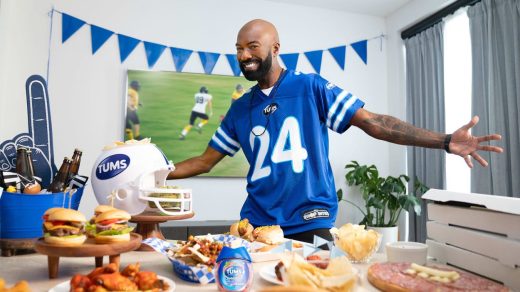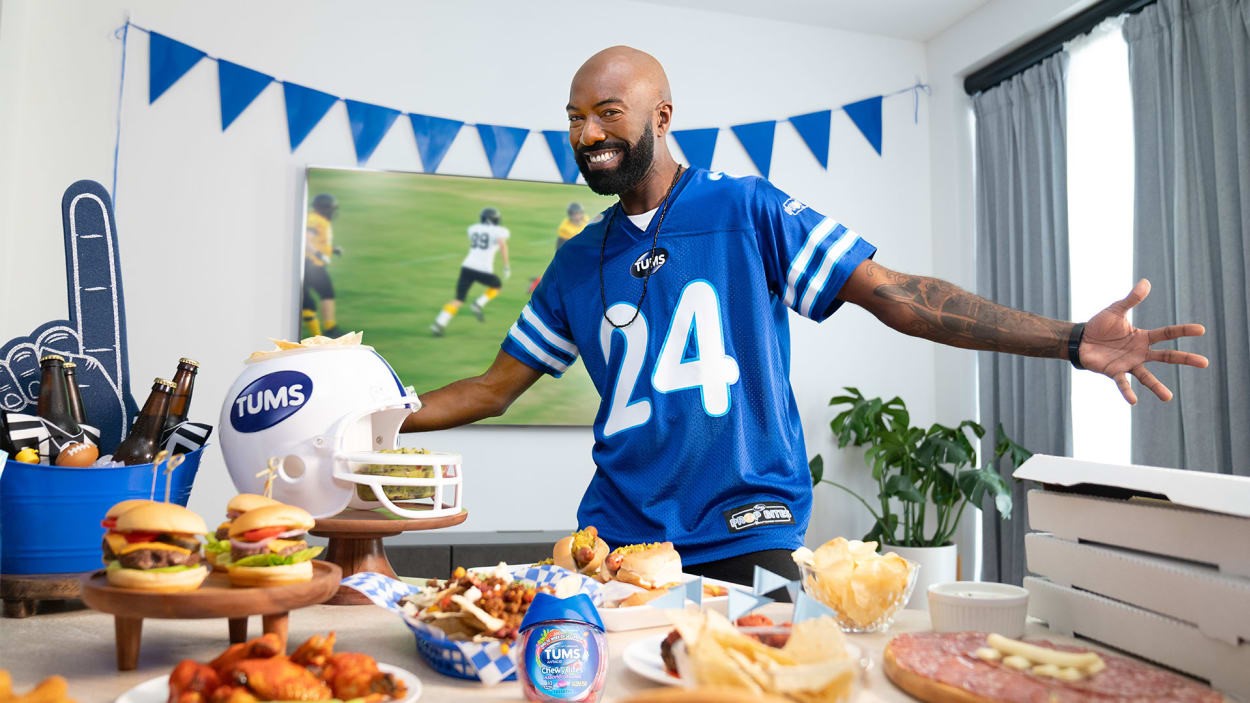Tums wants to feed your appetite for Super Bowl bets with DraftKings
By Jeff Beer
The Super Bowl is the, uh, Super Bowl of many things—from avocado consumption to house parties. Among the second Sunday in February’s claims to fame, it’s also the Super Bowl of sports betting. According to a 2023 American Gaming Association survey, approximately 50.4 million American adults were expected to bet on last year’s Super Bowl 57, wagering an estimated $16 billion. That’s a huge boost from 2022, when it was 31.4 million Americans betting $7.6 billion.
As we head toward Super Bowl 58, Tums, the venerable over-the-counter heartburn relief, is looking to get in on the action with a new big-game-focused campaign called “Prop Bites.” The antacid brand has teamed with DraftKings for snack-punned play on prop bets (side bets on parts of a game or event), asking people to place free bets on food-related questions like how many pizzas will be delivered before halftime, or will hot wings be the most popular spicy-food choice of the game.
In a series of spots and social posts, comedian Desus Nice hypes the free-food bets: “Get that chedda! Score that dough!” All you have to do is register for a free DraftKings account.
Which is where things get at least as questionable as week-old guacamole.
Last September, I made the argument that non-endemic brands getting involved with sports betting came with some significant gambles, primarily due to the risks around gambling addiction, especially among young people. Since the 2018 Supreme Court ruling to legalize sports betting, calls to a New Jersey gambling helpline have more than doubled, and there have been significant increases in gambling problems among young men.
Tums—not known as a particularly buzzy brand or one whose marketing has a history of making its corporate execs reach for their product—is clearly aiming to tap into the massive audience DraftKings can provide around the Super Bowl. However, any gain in short-term brand awareness by tapping into gambling could easily lead to long-term heartburn.
(24)



